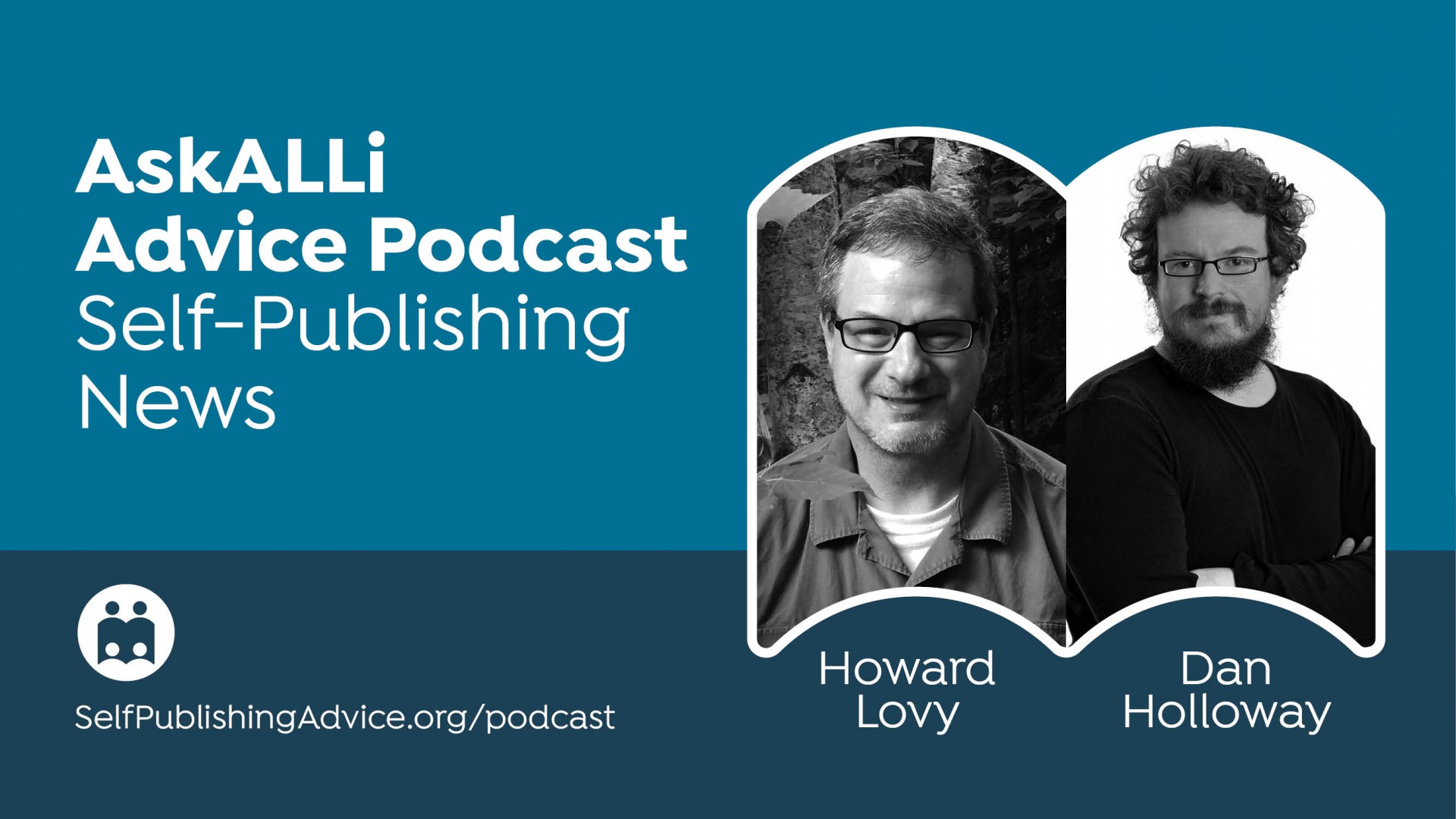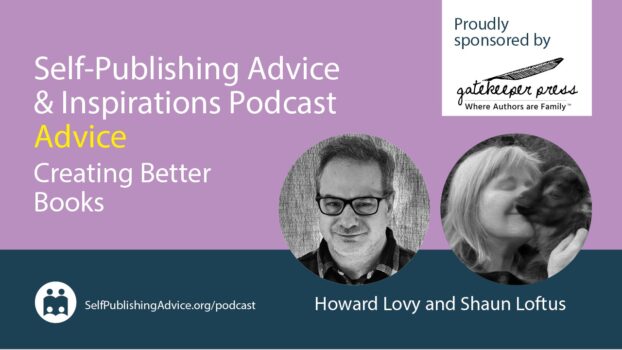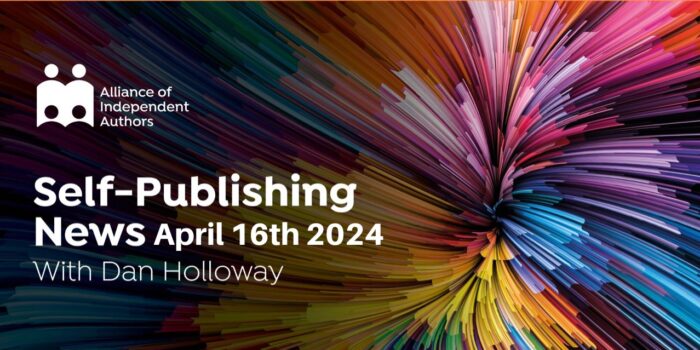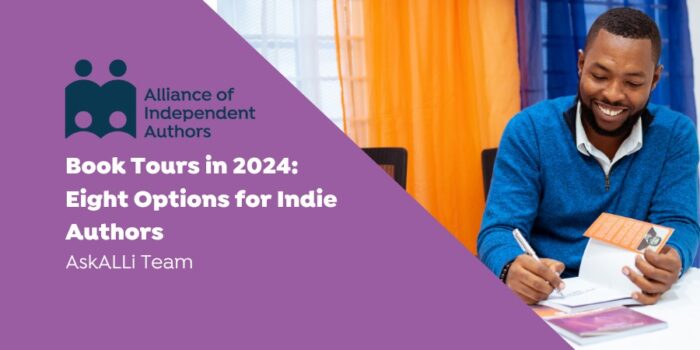Today, we will talk about Amazon's attack on libraries, pay homage to the late Lawrence Ferlinghetti, and answer the question, “What the heck are non-fungible tokens?”
These are among the topics discussed on Self-Publishing News with Alli News Editor Dan Holloway and book editor Howard Lovy. Together, they will bring you the latest in indie publishing news.
Listen to Self-Publishing News: Amazon and Libraries
Subscribe to our Ask ALLi podcast on iTunes, Stitcher, Player.FM, Overcast, Pocket Casts, or Spotify.
Amazon Attacks Libraries, What are Non-Fungible Tokens? Self-Publishing News Podcast with Dan Holloway and Howard Lovy Click To TweetFind more author advice, tips and tools at our Self-publishing Author Advice Center: https://selfpublishingadvice.org, with a huge archive of nearly 2,000 blog posts, and a handy search box to find key info on the topic you need.
And, if you haven’t already, we invite you to join our organization and become a self-publishing ally. You can do that at http://allianceindependentauthors.org.
About the Hosts
Dan Holloway is a novelist, poet and spoken word artist. He is the MC of the performance arts show The New Libertines Earlier this year he competed at the National Poetry Slam final at the Royal Albert Hall. His latest collection, The Transparency of Sutures, is available on Kindle.
Howard Lovy has been a journalist for more than 30 years, and has spent the last eight years amplifying the voices of independent publishers and authors. He works with authors as a book editor to prepare their work to be published. Howard is also a freelance writer specializing in Jewish issues whose work appears regularly in Publishers Weekly, the Jewish Daily Forward, and Longreads. Find Howard at howardlovy.com, LinkedIn and Twitter.
Read the Transcripts: Amazon and Libraries
Howard Lovy: Hello, and welcome to Self-Publishing News. I'm Howard Lovy, coming to you from still-frozen Northern Michigan.
With me virtually from the, I guess, less-frozen Oxford University is ALLi News Editor Dan Holloway. Hello, Dan and happy almost springtime.
Dan Holloway: It's not that frozen. It's been very wet. At the moment it's just gray and miserable.
Howard Lovy: Which, as much as I know about England, that's pretty much year-round, right?
Dan Holloway: That's pretty much year-round. Exactly.
Howard Lovy: So, what are you up to these days?
Dan Holloway: I'm preparing some talks on memory for a festival at one of the local schools, a science festival. So, I do work on creativity at the Cheney school in Oxford.
I did go in before COVID and gave assemblies and things like that. They're holding their science festival this year entirely online, and I am producing a series of talks, and we're all going to learn about memory palaces and create some memory palaces to help them when they get back to school eventually.
Howard Lovy: Wonderful. That sounds great. I could use that as well. The older I get, the more I can remember things that happened 30 years ago, but not what I ate for breakfast.
Dan Holloway: Exactly. So, you're still editing, are you?
Howard Lovy: When I'm not podcasting, I'm a book editor. And I guess I live vicariously through my clients and that's why I'm jumping for joy now. One of them had a manuscript accepted by her first-choice publisher, and so all our hard work has paid off. So, I'm very happy about that. So, that's pretty much how I try to make a living in these times. A lot of writers are working on their manuscripts under lockdown, which is good for the book editing business.
Dan Holloway: Yes. On that, I should congratulate, it's the second anniversary of one of my editing clients, ALLi member, Jane Davis, who won the very first Selfies award at London Book Fair two years ago with a book that I edited called, Smash All the Windows. It's just as good a book now as it was then. So, if there's anyone out there who hasn't read it, do go and read that.
Howard Lovy: Wonderful. Yes, and I interviewed her too after she won Selfie award a couple of years ago on Inspirational Indie Authors. So yeah, we're all managing to get by and produce quality books. I think indie writers and indie publishers are handling this pretty well, because we're used to sitting at home behind our computers anyway.
Dan Holloway: Yeah.
Amazon and Libraries
Howard Lovy: So, let's talk about the news. There's something new with Amazon and libraries, and as far as I know, they're saying that they will not supply eBooks from their own imprints to libraries. Why don't you give us a rundown on what's happening there?
Dan Holloway: Libraries were in the news, as you remember, before we went into lockdown. Over a year ago, libraries and publishers were at each other's throats. Then there was a bit of a truce for most of the time during lockdown, because publishers actually realized that libraries were doing a great job, and it almost went the other way, certainly with academic presses. I think in the States, as well as here in the UK, a lot of academic presses made all their back catalogs free for libraries so that publishers and libraries got on really well.
And then all of a sudden now, Amazon are stamping their feet at libraries and saying, we're not going to supply any of the books from our imprints. And it was at the center of the dispute between publishers and libraries which is, does that lending of eBooks by libraries cannibalize sales from publishers?
So, is it the case that if someone borrows an eBook from the library that's a sale that you've lost, or is it just an extra read? There's tension on both sides because libraries pay more to publishers than most people do because, obviously, they're lending at multiple times. So, the book is more expensive than it normally is, but on the publishers side, they get less of a royalty than they would if each of the people who borrowed the book were to have bought it.
So, the way it works between publishers and libraries creates a little bit of tension on both sides.
Publishers have become more and more convinced that library lending is eating into their sales. No one's actually brought forth any evidence about this. So, that's the really interesting thing. And if Amazon is getting involved, and if Amazon are saying that, it will be interesting to see if they can actually produce evidence.
Howard Lovy: Now, I'm curious, we've been talking about this for a long time it seems. Is this brand new for the tech age, or we're libraries and publishers at each other's throats a hundred years ago too? Has this always been a debate? It seems like a no-brainer to me. Growing up, I got into reading through the local public library, which then convinced me to go out and buy some books.
Dan Holloway: Yeah, on the other hand, I remember a lot of the books I own, and probably a lot of books I still own, I bought from library sales. So, I guess it feels as though libraries always got different editions from the mainstream editions of a lot of books. So, I guess they've always paid over the odds because they were going to be lending out.
I don't know enough about the history of it, I could give it a quick Google, but that would be it.
Howard Lovy: I'm sorry, I'm asking you to become a historian now. But to be fair, I have a confession to make, and you might appreciate this, I have a copy of Allen Ginsberg's Howl, that was due at the Detroit public library sometime in 1986, but I haven't returned it yet because I asked Allen Ginsberg himself to sign it in the early nineties and he scolded me, but he signed it anyway. So that sort of did eat into one sale of Allen Ginsberg's, Howl.
Dan Holloway: I think Ginsberg can afford it. We should probably also give a very brief obit and raise a glass to Lawrence Ferlinghetti on that, who I think died since our last podcast.
Howard Lovy: Yeah, a legend, a complete legend, and the last time I was at City Lights, I was at a librarian conference, the American Library Association a few years ago had its annual meeting in San Francisco, I went to City Lights, and there was Lawrence Ferlinghetti behind the counter, working the counter in his nineties. I exchanged brief pleasantries with him. Just a very accessible guy, and the world has lost a lot with his passing.
Dan Holloway: Yeah. But he won't be coming after you for royalties from that sale of Howl.
Howard Lovy: I hope not. No, he won't. He'll haunt me, as does Alan Ginsberg himself. So anyway, let's get back to Amazon.
Dan Holloway: Right now, that's where we are. They're saying no, we're not going to give you books.
The other interesting thing that's happened is this case in, I think it's Maryland, Maryland have got a bill coming to their state legislature which would give libraries the right to force publishers to grant them a license to any eBook they want, and these two issues feel like they go together. That would mean Amazon couldn't say, no, we're not supplying you. So that would be really interesting.
I don't know if you have legal deposit libraries in America.
Howard Lovy: I'm not sure about that, or if they do, it must go by a different name, but Maryland must have a very active library association to get a bill like that.
Dan Holloway: Yeah. We do in the UK. There are six, I think, libraries in the UK that have a right to any book that's published in the country. And this is one of the things you'll often see on the ALLi forum is, do I have to send copies of my books to the British library and the Bodleian library, and so on? And the answer is technically yes, you do.
Howard Lovy: You mentioned data earlier, you know, data to support or not support whether libraries actually do eat into sales or encourage more sales. And I'm wondering, has anybody actually done a study like this?
Dan Holloway: I don't think so, because I think it will be really hard to get hold of the data.
There was talk, about a year ago, questions about whether there might be data when people were talking about cannibalization, there were people quoting that they had seen that someone said there might be data from Overdrive, but I think that was anecdote.
Howard Lovy: Yeah, so Amazon is going just on pure feeling?
Dan Holloway: Yeah, Amazon's going on feeling they clearly don't like that eBook sales are slowing down.
It's a similar sort of thing, I guess, to what's happening with Netflix. You're seeing that Netflix are getting stricter about password sharing, and one of the reasons for that is because subscriptions are slowing down. So, I wonder if the same thing's happening. If eBook sales are slowing down, is this why Amazon are wondering whether they can crank more sales out of making people buy their books rather than going to libraries.
Howard Lovy: Well, we'll continue to follow this closely. I'm not ashamed to say that I'm very pro-library.
Dan Holloway: I think we've said that together many times. You don't make many friends in this game by being against libraries.
What are Non-Fungible Tokens?
Howard Lovy: Okay. Well, let's shift to another segment of the tech industry, and I guess everything old is new again, we're back to talking about blockchain. I remember a couple of years ago we were bullish on that and then it, kind of, disappeared.
Now we have a new initial we need to memorize called NFT, or non-fungible tokens, and that is where my knowledge ends. So, you'll have to tell me what this is, and why it makes a difference to writers.
Dan Holloway: A non-fungible token is simply a token on the blockchain, which is a way of proving your ownership of a digital file. In particular, proving your exclusive ownership of a digital file. So the file might be publicly available. It might be available on Instagram, or YouTube, or on a creator's website. It might be reproducible, but it's a way of proving only you have the rights to say, I own the original, or I own, I guess what we, when I was back at college, we used to call, the fundamental edition of this. So that's what it is. It's the same as blockchain tends to be used for in the logistics industry, it's a way of guaranteeing ownership, vouchsafing ownership, and supply chain.
Howard Lovy: You mentioned in your column that for writers, they could create special first editions using this. How does that work?
Dan Holloway: This is where it gets controversial. You have to mint a copy, you have to create one of these tokens, and creating one of these tokens for your file at the moment involves what people call gas, which means you basically have to give money. You have to give money to the people who run sites that mint these non-fungible tokens.
Howard Lovy: Right, so all those power-hungry, blockchain, computer farms?
Dan Holloway: Computers do that, yeah. They do their hashing of whatever it is they hash to come up with the proof that this unique thing has been created. It's a bit like, if you've seen the film of the Lord of the Rings with the Uruk-hai emerging from the mud, that's how I imagine these tokens emerge-
Howard Lovy: That is a good image.
Dan Holloway: -process of computers doing these, environmentally, incredibly damaging calculations.
People are hearing stories of, you pay $20 for this to happen, and then it doesn't work. So, you have to pay another $30 and then another $50. And there are people saying that they're paying up to a hundred dollars to create these tokens.
Howard Lovy: It sounds like a Nigerian Prince scheme to me.
Dan Holloway: I know Nate, Nate Hoffelder on Twitter, basically called it a scam. I think a lot of people are calling it a scam for that reason, but a lot of people are also really excited about it. This has emerged out of the art world, and I guess the art world's always being like that, half the people think it's a scam and half the people think it's amazing.
I grew up at the same time, I'm sure whether we're the same age, I think pretty much. So, we both grew up during conceptual art. So, when Damien Hirst was young. In Britain it was the young British artists and conceptual art was taking off. And I guess the American equivalent will be people like Nauman, he's maybe a little bit earlier. And people were paying tens of millions of dollars for the things that people didn't really think was art.
It's no different from that.
Howard Lovy: So, has anybody actually gotten rich off of this yet? Or is there potential for riches down the road?
Dan Holloway: The famous guy, who's got really rich off this, is the digital artist called, Beeple. When I wrote my column, he'd just sold a piece of digital art for $6.6 million, and then the day after he sold another one for 10 times that, for $69 million, essentially for a JPEG file. So, yeah, that's fairly rich.
Howard Lovy: And you better make sure you back it up! Back up that file!
Dan Holloway: Yeah, definitely. Don't lose the key to your wallet. That's the other thing, because you get this through your crypto wallet. So don't lose the key to the wallet. So yes, you can get rich off it. People are getting rich off it, but I think it's a bit like Kickstarter, that it works for people who have a following already, because you need to know that you're going to make your original minting money back.
Howard Lovy: Right. Oh, I see. So, maybe some of our more established indie writers with a huge following, maybe it's more for them than for the rest of us.
Dan Holloway: Yeah. Either huge or devoted, and I wonder if the genre might make a difference. I can imagine genres where you get a lot of fandoms. So, fantasy, science fiction, I can imagine where people really love the characters, if you produced a special novella based on one of your characters, that kind of thing I can see doing really well, but it's not for the likes of me writing literary fiction, that's for sure.
Howard Lovy: Well, don't sell yourself short. It might be for you and your creativity special edition.
Dan Holloway: It might be something I could do with creativity, that's very true.
Howard Lovy: Okay. So, I think that's all the news that fits today. We're going to keep an eye, obviously, on all the latest tech breakthroughs and also, we are going to defend libraries to the death. And meanwhile, I'll talk to you again in April.
Dan Holloway: Brilliant, thank you.
Howard Lovy: Okay. Talk to you later. Bye.





